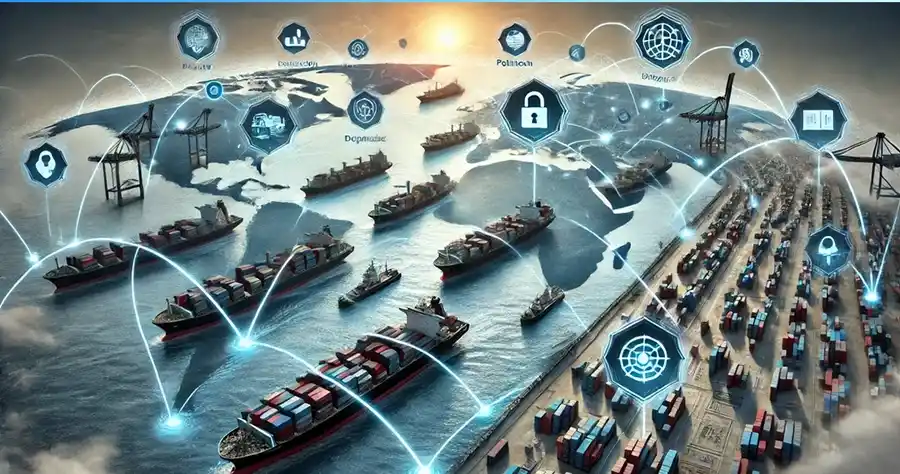The ship is the cash generator: it has to be available
The shift of global shipping to digitalisation increases the need for strong cyber security to manage risk and ensure business continuity amid increasing operational disruptions.

Global shipping markets are in a state of transition and disruption. Political risk, trade lane diversions and constrained capacity are putting more pressure than ever on availability of tonnage.
The rewards of being in the right place and time to capture this opportunity are high, but so are the risks of non-performance. This is not a time to be delayed, detained or off-hire, especially when the reason is a cyber- attack.
Shipping companies and vessel operators are transitioning towards far more digitalised operations to increase voyage efficiency, improve safety and achieve compliance with increasingly stringent global and regional regulations.
This process of connecting more ships to a wide area network makes effective cyber security a key enabler of this change. Whether or not assets are able to operate at maximum efficiency depends on maturity of the vessel operator in terms of their cyber security preparedness.
There are multiple threat vectors that ships and managers need to be aware of, some derive from technology others are human-related. Systemic risk can be managed but people have often proved to be the weakest link.
Proper training is vital – not just for seafarers – but for shore-based staff too. A programme that extends to understanding the cyber-readiness of vendors and contractors can help to mitigate supply chain cyber risks.
Each of these aspects will be discussed addressed in upcoming blogs but one thing is certain. Achieving sustainable, digitalised, high efficiency operations, cyber risks must be managed from boardroom to engine room.
Case Study: the right measures
As businesses adopt new and emerging technologies to support their digitalisation strategies, the need for cyber security increases - as does the demand for experts who can prepare prevention and response strategies. There has been a realisation within the maritime industry of the severity of the threat cyber security poses to business continuity and reputation.
Common threats to information security include weaknesses in cyber security practices, such as the use of outdated and unpatched software, poor password hygiene and a lack of regular system updates. From a technology perspective, insufficient network segmentation – between roles, departments and functions - can leave maritime organisations vulnerable to cyber- attacks.
Sign up to stay secureInsights
Read about our latest insights and explore the forefront of digital protection through our curated selection of news, articles, and expert blogs.
